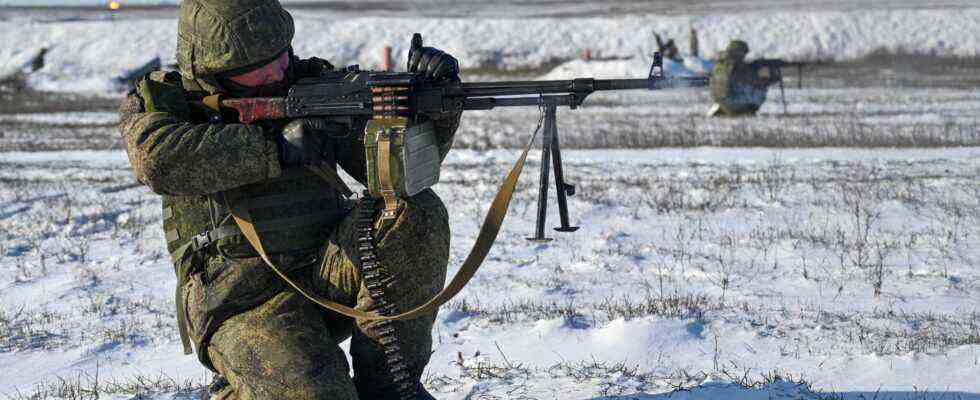Status: 01/13/2022 2:07 p.m.
After the USA and NATO, the OSCE is now also dealing with the tensions with Russia: The organization continues to rely on dialogue, even if Poland warns of a high risk of war. And more serious tones also come from Moscow.
The Polish Foreign Minister and Chairman of the Organization for Security and Cooperation in Europe (OSCE), Zbigniew Rau, sees the danger of war in Europe with a view to the Ukraine crisis and the tensions with Russia currently greater than it has been for 30 years. At a meeting of the organization, he referred, among other things, to the current Russian troop deployment near Ukraine.
“We should concentrate on a peaceful solution to the conflict in and around Ukraine,” warned Rau. The current crisis “threatens the stability and security of the entire European system,” said Rau. The organization is the right platform to talk about the security concerns of some states and to initiate confidence-building measures, he added.
The meeting followed bilateral US-Russia crisis talks on Monday and a rare meeting of the 30 NATO countries with Russia on Wednesday. However, the meetings did not bring about a breakthrough.
Now, at the OSCE meeting, Russia insisted on an early decision on the security guarantees demanded by Russia. Delaying the negotiations could lead to an “inevitable deterioration in the security situation of all states without exception,” said Russia’s OSCE Permanent Representative Alexander Lukashevich. “Russia is a peace-loving country. But we don’t need peace at any price.”
From a Western perspective, the many Russian troops pose a threat to Ukraine. Moscow, on the other hand, sees itself threatened by the transatlantic military alliance NATO and demands that the alliance not accept any new members such as Ukraine or Georgia.
USA discuss sanctions against Putin
Russia also warned the US against imposing sanctions on President Vladimir Putin. “Imposing sanctions on a head of state would cross a limit, and that would mean breaking off relations,” said Kremlin spokesman Dmitri Peskov. The USA and other states had threatened Russia with such sanctions in the event of an invasion of Ukraine. Moscow denies any plans to attack. Peskov criticized the move by the US senators not helping to create “a constructive atmosphere” for international deliberations on the Ukraine conflict.
Democratic US senators presented a bill on Wednesday that provides for sanctions against Putin, Prime Minister Mikhail Mishustin, high-ranking military officials and the Russian banking sector if Russia should attack Ukraine.
“OSCE ideal for a dialogue on equal terms”
The USA has again announced that it intends to talk to Russia and other states about the exchange of military information and confidence-building measures within the framework of the OSCE. US diplomat Michael Carpenter said the forum is ideal for a dialogue on an equal footing in order to reduce the current tensions. “Only in the OSCE can we sit together at a table with equal votes from all 57 participating countries.”
Carpenter emphasized that no regional spheres of influence should be defined in future OSCE talks. The right of states to freely choose their alliances should not be curtailed.
Relations with Russia are also the subject of deliberations between the EU foreign ministers and defense ministers in Brest. Before the meeting, Federal Foreign Minister Annalena Baerbock urged Europe to play a strong role in solving the Ukraine crisis. This is “particularly important because the EU’s very own interests are affected,” said the Green politician. At the same time, the EU needs a “strategic compass”, especially when dealing with autocratic states like Russia. “If Europe goes on a common course and acts as one, it is a heavyweight – if it acts split, it fights under its weight class.”
Russia is combative
Russia drew a negative balance after the many meetings and warned of a dead end in the negotiations. Deputy Foreign Minister Sergei Ryabkov criticized the intransigence of the US and other countries in Russia’s demands for security guarantees. Therefore, he sees no reason for further talks. Instead, Russia will use “other measures and techniques” in relation to the West. The Tass agency quoted Ryabkov as saying that military experts would provide President Vladimir Putin with options if the Ukraine situation worsened. But diplomacy must be given a chance.

